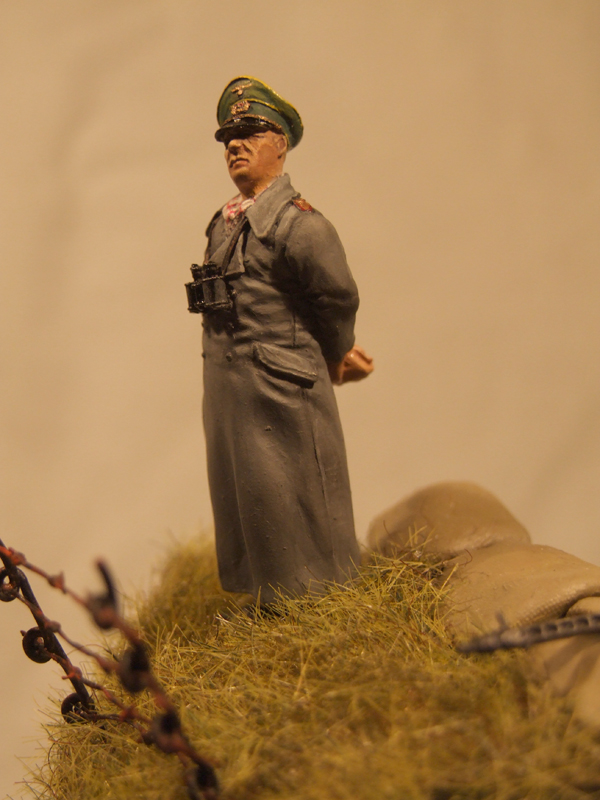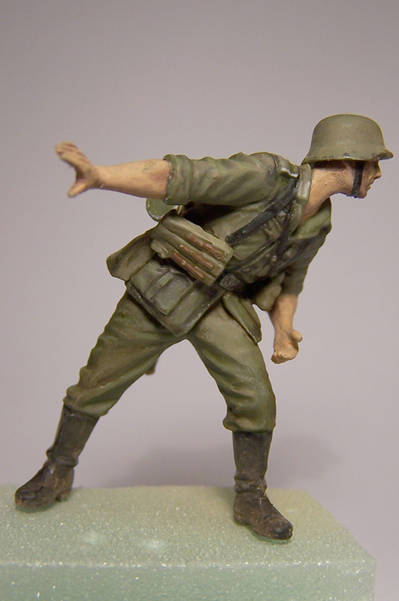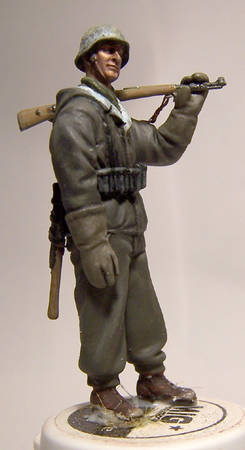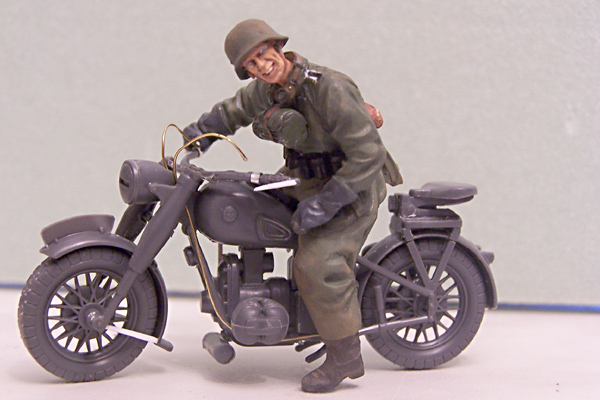Ola Stan
First of all I want to start off with that I am by no means an expert painter. I'm far out of the range of the big guns here on the site.
But I only paint figures with enamel and have been doing so for years. So I kinda managed to get a technique that worked for me.
Basically I follow a few rules which i don't doubt will be very different with acrylics.
1. Thin your paint well.
2. thin layers at a time. and built up shadows and highlights out of several strokes and layers
Normally I set up the basecoat of what I want to paint in a little darker shade then it should be. Holding the figure under a desktop lamp will immediately show you where shadows and highlights should come. The shadows I built up taking the darker basecoat and adding black to it. First a little. Do the first shadowlayer, Then a bit more. Painting the area where the shadow is darkest etc.etc. till I'm satisfied. Same goes with the Highlights. But then I take the color that the basecoat should actually be. That will be the first highlight layer and then I usually add a sand color to the mix. Every lighter layer from that point goes on a ever increasing stroke towards the outer point of the crease (I hope that makes sense) till I'm satisfied. In some colors you can dilute with white but that quickly becomes too strong and looks out of place. Keep in mind that the whole proces minus the basecoat of the figure is done with paint that mostly resembles a filter and some of my highlights can consist of some 7 layers
Here are some examples of my working with enamels on figures Bit of a mix up there are some older figures among them and looking back at them I can see how much I have learned through the years






Hope this helps you a bit
Greetz
Robert



























